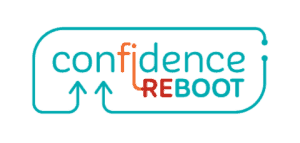
In the realm of intimate relationships, body language often speaks louder than words. Whether it’s a subtle shift in posture or a fleeting glance, these non-verbal cues can reveal more about our feelings and intentions than we might realize.
But what happens when our body language conveys insecurity? Let’s explore how this can sabotage the success of our relationships.
Table of Contents
The Science Behind Body Language
Body language is a silent communicator, especially in intimate relationships where emotions run deep. It’s a universal language that transcends words, revealing our true feelings and intentions.
The Role of Non-verbal Cues in Human Communication
Humans have been relying on non-verbal cues for millennia. In intimate relationships, a gentle touch or a prolonged gaze can convey feelings of love, while averted eyes or a tense posture might indicate discomfort or distrust.
These cues provide a deeper understanding of our partner’s emotions, often more accurately than words.
How the Brain Perceives and Interprets Body Language
Our brains are hardwired to pick up on these cues. In intimate settings, recognizing a partner’s body language can be crucial for understanding their emotional state.
For instance, if a partner suddenly withdraws or becomes distant, it might be a sign of underlying issues.
The Connection Between Self-confidence and Body Language
Confidence, or the lack thereof, is prominently displayed through our body language. In intimate relationships, insecure body language can create barriers, making it challenging for partners to connect on a deeper level.
Common Signs of Insecure Body Language
In intimate relationships, it’s essential to recognize and understand the signs of insecure body language. These subtle cues can provide insights into our partner’s feelings and concerns.
Avoiding Eye Contact
Eyes are often called the windows to the soul. In intimate relationships, avoiding eye contact can signal discomfort, distrust, or a lack of connection.
Touch Aversion
In intimate relationships, physical touch can be an important form of communication. If your partner is avoiding all forms of contact, it could indicate underlying uneasiness or insecurity.
Slouched Posture
A slouched posture can indicate a lack of self-assuredness. In the context of a relationship, it might suggest feelings of inadequacy or fear of rejection.
Fidgeting
Constant fidgeting, especially during serious conversations, can be a sign of nervousness or anxiety about the relationship’s status.
Crossing Arms
While it might be a comfortable position for some, crossing arms can also indicate defensiveness or a reluctance to open up emotionally.
Overcompensating Gestures
Speaking too loudly or being overly animated might be a way of masking insecurity or trying to assert dominance in a relationship.
The Impact of Insecure Body Language in Intimate Relationships
Insecure body language can have profound effects, especially in intimate relationships where understanding and trust are paramount.
First Dates
Initial impressions matter. On first dates, insecure body language can set the tone for the entire relationship, potentially leading to misunderstandings or missed connections.
Long-term Relationships
In long-term relationships, insecure body language can be a barrier to communication and connection. It’s important to recognize signs of insecurity in order to ensure that both partners are comfortable and secure.
Deep Conversations
During heartfelt conversations, insecure cues can hinder open communication, making it difficult for partners to express their true feelings.
Conflict Resolution
Insecure body language can inhibit resolution during disagreements, making it difficult to reach a constructive outcome.
Physical Intimacy
In moments of closeness, body language plays a pivotal role. Insecure cues can create distance, even when partners are physically close.
Learning to Overcome Insecure Body Language
Insecure body language can have a profound effect on intimate relationships. Fortunately, with a bit of awareness and effort, we can learn to recognize and overcome these cues.
Understanding Your Needs
The first step is understanding our own needs. Take some time to reflect on the sources of your insecurity and think of ways that you can address these issues.
Connecting on a Deeper Level
Once we’ve identified the source of our insecurities, it’s important to open up and build trust with our partner. Communicate from a place of vulnerability and attempt to connect on a deeper level.
Practicing Self-love
It’s essential to practice self-love and cultivate a sense of acceptance. At the end of the day, our worth is not determined by another person or our relationships.
Taking Time for Yourself
Finally, it’s important to take time for ourselves. Spend some time alone and do something that fills you with joy. This will help you to reconnect with your inner strength and regain a sense of confidence.
Strategies to Improve Body Language
Improving body language can enhance the quality of intimate relationships, fostering deeper connections and mutual understanding.
Self-awareness
Recognizing one’s own body language patterns is the first step towards improvement. By being aware, individuals can actively work on presenting themselves more confidently.
Practice
Rehearsing confident body language in front of a mirror or with a trusted friend can help in internalizing these cues.
Feedback
Seeking feedback from a partner can provide valuable insights into how one’s body language is perceived.
Mindfulness and Meditation
These techniques can help in calming the mind, reducing nervousness, and promoting a more confident posture and demeanor.
Professional Training
For those looking to make significant changes, professional courses or workshops on body language can be beneficial.
Real-life Success Stories
Throughout the years, many individuals have transformed their relationships by addressing their insecure body language.
From couples who rekindled their love by understanding each other’s cues to individuals who found love by exuding confidence, the power of body language in intimate relationships is undeniable.
Key Takeaways
Body language is a powerful tool in intimate relationships, offering insights into our partner’s emotions and intentions.
Insecure body language can create barriers, but with awareness and effort, it’s possible to transform these cues, leading to deeper connections and a more fulfilling relationship.
